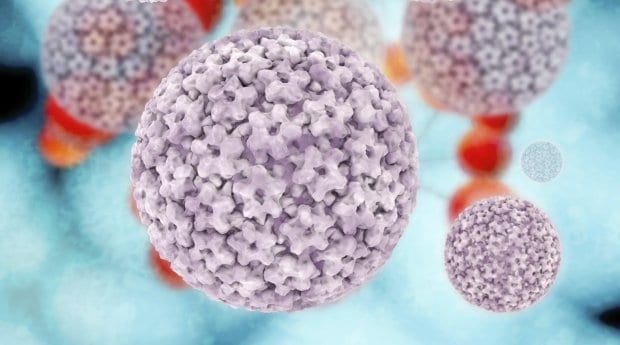After years of requests from gay health advocates, BC’s Ministry of Health announced July 7 that it will offer free human papillomavirus (HPV) vaccines for boys and young men who have sex with men, beginning this September.
“The human papillomavirus virus is the most common sexually transmitted infection,” BC Health Minister Terry Lake said in a statement. “It can lead to serious health problems and could develop into an HPV-related cancer. Our vaccination program will help protect all young British Columbians from cancers and other diseases caused by HPV infection.”
The HPV vaccine is currently offered to all girls in Grade 6 in both public and private schools as part of the province’s routine school-age immunization schedule. Girls and young women born in 1994 or later who missed the vaccine can also receive the immunization for free.
But boys and men have always had to pay for the vaccine.
While HPV can cause cervical cancer in women, it has also been linked to oral and anal cancers in gay men, as well as genital and anal warts.
“We know that if you get above 60 percent of the women vaccinated you get a herd immunity effect in which heterosexual men are protected as well. So we know that by vaccinating young women we are protecting men who have sex with women,” says provincial health officer Perry Kendall. “But we are not offering protection to men who have sex with men.”
The executive director of Vancouver’s Health Initiative for Men (HIM) applauds the new funding but wonders why it extends only up to men age 26 and under.
“While this extension is a good first step, we recognize that the risk of HPV infections and HPV-related disease and cancers among gay men and men who have sex with men doesn’t stop after the age of 26,” Greg Oudman says. “It’s our hope that this low-risk prevention option becomes available to all boys and men soon.”
Joel Palefsky, an infectious disease expert from the University of San Francisco applauds the BC government’s decision but also hopes the program will eventually cover all males. “I’m an advocate for universal vaccination and I think that boys deserve the same consideration for vaccination as girls,” he says. “It’s step in the right direction if they are recognizing at least a sub group of boys and men who would benefit from vaccination. It would be wonderful if that policy would extend to everyone.”
He says the vaccine may also help prevent oral cancer in men. “Many people in our field believe universal vaccination is warranted even if a high percentage of girls are vaccinated,” he explains. “They will get prevention for most anal cancers and most genital warts as well as the likely but as of yet unproven prevention of oral cancer.”
Canada’s National Advisory Committee on Immunization recommends HPV immunization for males and females between nine and 26 years.
Kendall says limited funding prevents universal immunization for all males so the BC Communicable Disease Policy Advisory Committee decided instead to focus on a subset of males who were at high risk for HPV.
“We did do some budgeting and what we don’t know is what percentage of the population are at risk or what percentage would take up the vaccine,” he says, “because in an ideal world we’d get kids at a certain age and get more coverage. But we’re thinking we might be delivering 15,000 doses every year.”
In addition to boys and men who have sex with men, the new HPV funding will also target male youth who engage in survival sex.
“Street-involved youth have a greater risk of contracting HPV as they are at higher risk of early onset of sexual activity and survival sex, which is the practice of exchanging sex for items of basic need,” says a Ministry of Health spokesperson. “As the HPV vaccine is most effective when administered before a child is first exposed to the virus, vaccinating at-risk boys gives them the best chance at protection.”
The BC Communicable Disease Policy Advisory Committee has no recommendation for the use of the HPV vaccine for men over the age of 26.
“As with any new or improved vaccine, should Health Canada expand the licensing to include males older than age 26, the Ministry would consider it for inclusion in the publicly-funded schedule,” the spokesperson says, noting that a number of factors would inform the decision, such as “efficacy, burden of illness, cost-effectiveness, feasibility of delivery and public acceptability.”
The new GPV vaccination program will be delivered through specialized clinics such as Spectrum Health Care and HIM, as well as local public health units.
Contact your local public health unit to find out where immunizations are offered in your area or click on immunizebc.ca/finder.

 Why you can trust Xtra
Why you can trust Xtra


